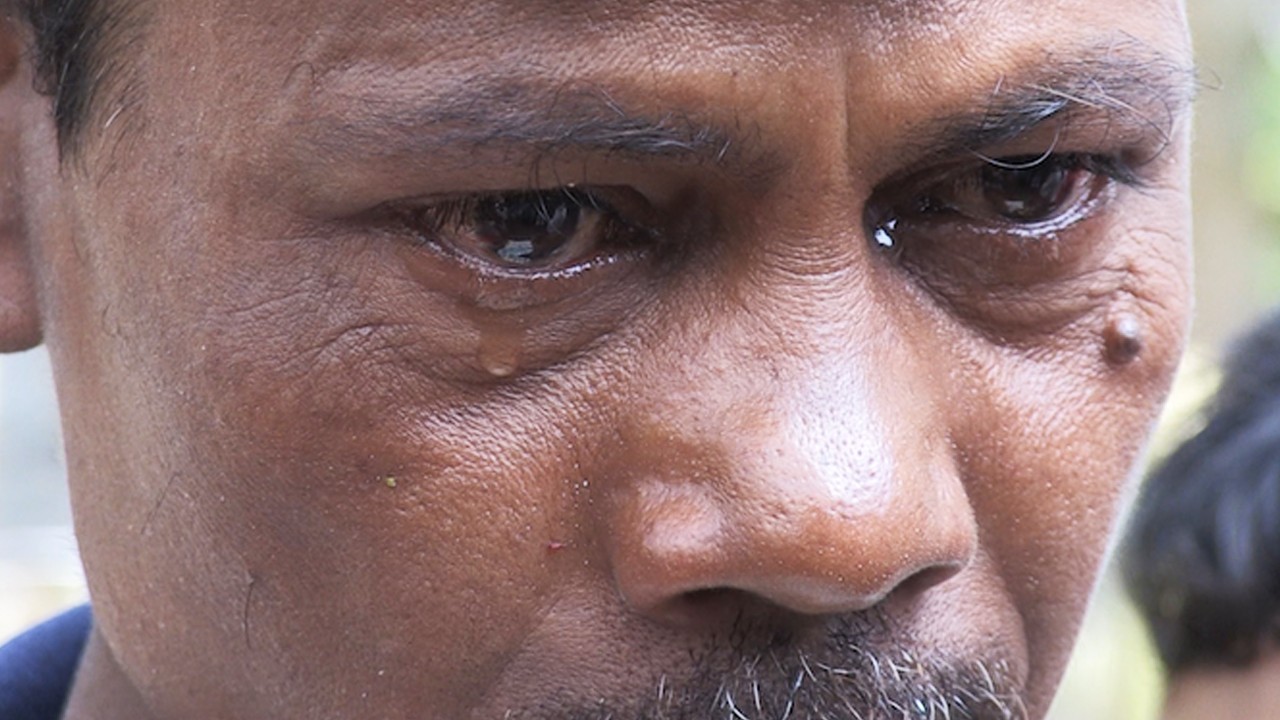Image via Flickr.
This is an opinion piece by Chiara Trincia, senior communications officer who currently leads the Middle East, Europe and Asia at the International Rescue Committee.Me too” -- words that have flooded social and global media millions of times since abhorrent reports of sexual violence in Hollywood and beyond emerged in recent weeks. Women have, of course, known the practical reality of misogyny since time immemorial - facing the violence itself, misplaced stigma, persistent ineffectiveness of the law and very real threat of personal or professional retaliation whether or not perpetrators are brought to light. One famous actor recently equated talking about sexual violence to “talking about the weather,” not just because of societal deafness and incredulity, but also because of the painfully obvious scale and nature of the issue to women.Women in countries in crisis remain, however, largely outside of the current public outcry. They are without a hashtag to empower and unite them. And yet, the global humanitarian crisis we currently face -- with 65 million people, the greatest number since WWII, displaced around the world -- is deeply gendered. Despite making up an historic 80 percent of that figure, women and girls are among those at greatest risk of paying for conflict and disaster with their lives.The Rohingya refugee crisis is a perfect example. It is squarely a humanitarian crisis and a crisis of women’s rights. It is not a pretty picture.In Cox’s Bazar, Bangladesh, where a million Rohingya refugees are expected as they continue to escape horrendous violence in Rakhine, eight-out-of-10 people fleeing is a woman or a girl. The signs of visible and extensive trauma are some of the worst the IRC has ever seen. Half of the women and girls accessing dedicated safe spaces, including as young as five, have been sexually assaulted. Countless others remain.
Check out more videos from VICE:
In Rakhine state, where thousands of Rohingya women remain trapped and caught in conflict with the Burmese military, the situation is not better.Enclosed in camps and cut off from basic goods like food or medicine for weeks, the IRC spoke to our own Rohingya health workers. They report being unable to save the lives of vulnerable pregnant women as they are refused life-saving help: “They told us if we cannot pay we let them die.” Adolescent girls the IRC spoke to, before losing access to Rakhine State, told us they are always worried “something bad will happen to us,” because of how frequently it does. The discrimination and violence they face in Rakhine’s camps is so persistent, one girl told us, that it’s like “living in hell.”The issue begins with not recognizing the basic facts about how exclusion and biases that women and girls face are compounded by insecurity. Three-in-10 of women around the world experience sexual violence in their lifetimes. In some places it’s seven-in-10. Women and girls in crisis are deliberately targeted with sexual violence and rape as weapons of war, which weren’t even crimes punishable in international criminal law until recently. Women who survive find themselves pregnant or sick, with limited access to even the most basic health care, including birth control, to which 225 million women want access worldwide. This is especially serious when it comes to early marriage: 750 million women alive today were married as young as three, so frequently it’s happened by the time you finish this sentence. They are forced to abandon their education and have many children early, endangering their lives, limiting their prospects for the future and trapping them in a cycle of poverty.Here’s a start to changing the script: what we know for certain is the undebatable power of investment in women and girls. We know that the more gender equal a country is, the lower the prevalence of violence against women - and the greater their economic development. We also know that despite the fact that violence against women and girls occurs in every single conflict and disaster without exception, gender-based violence programs only receive 0.5 percent of all humanitarian funding. We must hold the entire humanitarian system -- international donors, UN agencies, NGOs -- accountable for this fatal omission.For many women and girls around the world, the support they receive from the IRC marks the first time they can envision not only recovering from unspeakable violence, but becoming powerful, resilient, courageous agents of change in their own right. We must demand that our politicians and peers do the same. At home and abroad.
Advertisement
The list of atrocities, including being forced into sex in exchange for food, is boundless. When they do ask for help, there are life-threatening consequences: as humanitarian agencies scramble to make resources match the need on the ground, they risk being identified to the community and retaliated against for speaking out."It is squarely a humanitarian crisis and a crisis of women’s rights. It is not a pretty picture."
Advertisement
Check out more videos from VICE:

In Rakhine state, where thousands of Rohingya women remain trapped and caught in conflict with the Burmese military, the situation is not better.Enclosed in camps and cut off from basic goods like food or medicine for weeks, the IRC spoke to our own Rohingya health workers. They report being unable to save the lives of vulnerable pregnant women as they are refused life-saving help: “They told us if we cannot pay we let them die.” Adolescent girls the IRC spoke to, before losing access to Rakhine State, told us they are always worried “something bad will happen to us,” because of how frequently it does. The discrimination and violence they face in Rakhine’s camps is so persistent, one girl told us, that it’s like “living in hell.”The issue begins with not recognizing the basic facts about how exclusion and biases that women and girls face are compounded by insecurity. Three-in-10 of women around the world experience sexual violence in their lifetimes. In some places it’s seven-in-10. Women and girls in crisis are deliberately targeted with sexual violence and rape as weapons of war, which weren’t even crimes punishable in international criminal law until recently. Women who survive find themselves pregnant or sick, with limited access to even the most basic health care, including birth control, to which 225 million women want access worldwide. This is especially serious when it comes to early marriage: 750 million women alive today were married as young as three, so frequently it’s happened by the time you finish this sentence. They are forced to abandon their education and have many children early, endangering their lives, limiting their prospects for the future and trapping them in a cycle of poverty.
Advertisement
As we lift up the stories of women and girls who have been victims of sexual violence here at home, we must not forget those caught in crisis around the world - for whom #metoo is also a grim but persistent reality. And until women and girls worldwide can enjoy the rights and access due to them, we will never realize the rights, desires and potential of half of the global population - and the full potential of a safer, more equal, common future.Find out more about the IRC’s work in Rakhine and Cox’s Bazar here - and help by donating as we work to save lives in Myanmar, Bangladesh and in countries around the world.Want to do more? Make sure you express your concerns to your elected officials. Demand a change of U.S. policy towards Burma that ensures an end to the violence and human rights abuses perpetrated by the Burmese military and ensures justice and accountability. Demand that international humanitarian organizations have free and unimpeded access to Rakhine state to deliver life-saving aid. And ask your elected officials what they are doing to help the most vulnerable Rohingya refugees to safety through the U.S. resettlement program."We know that the more gender equal a country is, the lower the prevalence of violence against women - and the greater their economic development."
